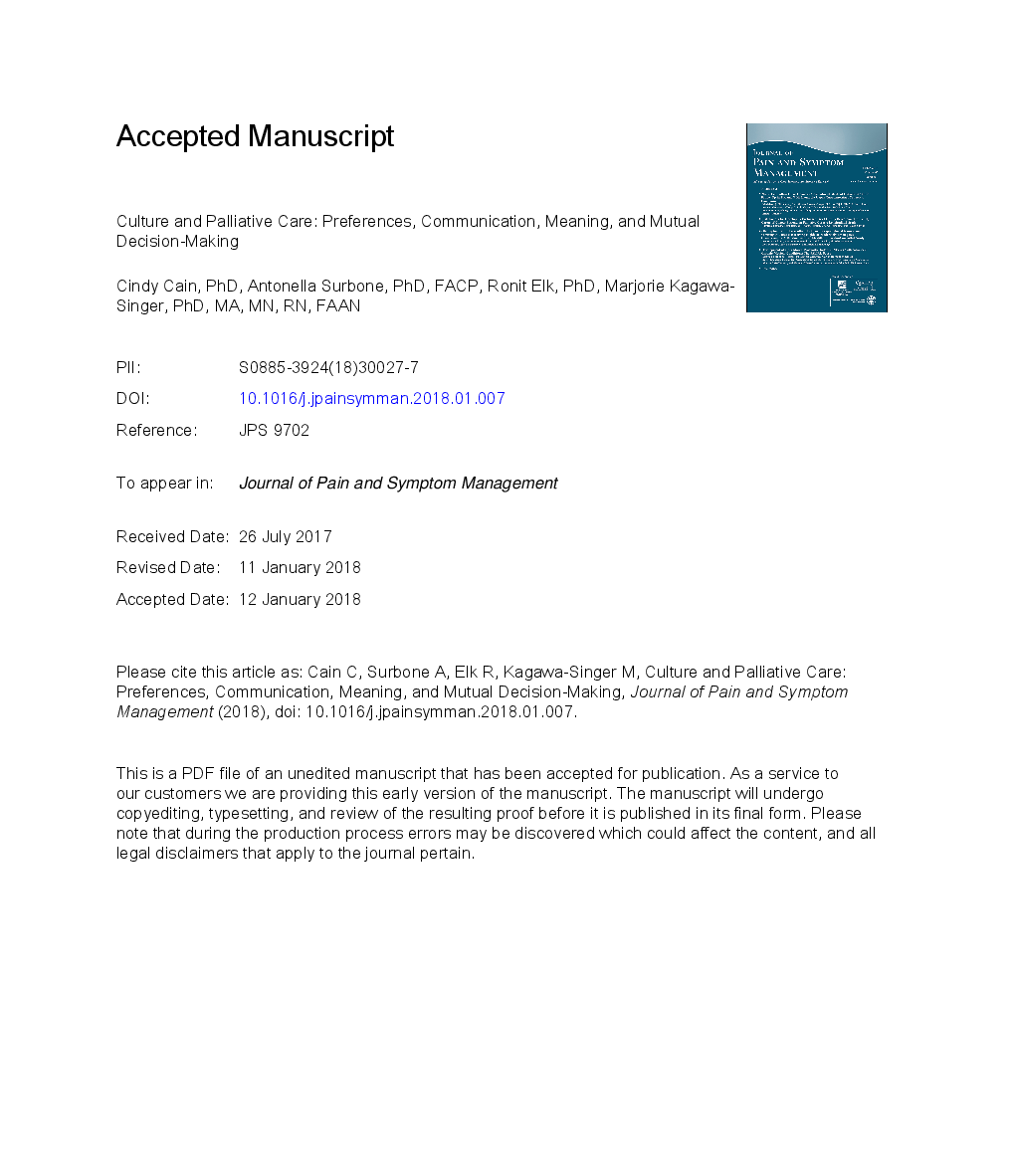ترجمه فارسی عنوان مقاله
فرهنگ و مراقبت تسکین دهنده: ترجیحات، ارتباطات، معنی و تصمیم گیری متقابل
عنوان انگلیسی
Culture and Palliative Care: Preferences, Communication, Meaning, and Mutual Decision Making
| کد مقاله | سال انتشار | تعداد صفحات مقاله انگلیسی |
|---|---|---|
| 127070 | 2018 | 35 صفحه PDF |
منبع

Publisher : Elsevier - Science Direct (الزویر - ساینس دایرکت)
Journal : Journal of Pain and Symptom Management, Volume 55, Issue 5, May 2018, Pages 1408-1419
ترجمه کلمات کلیدی
مراقبت تسکین دهنده، فرهنگ، نژاد و قومیت، تعیین کننده های اجتماعی، اولویت ها، ارتباطات، رنج کشیدن، تصمیم سازی،
کلمات کلیدی انگلیسی
Palliative care; culture; race and ethnicity; social determinants; preferences; communication; suffering; decision making;

